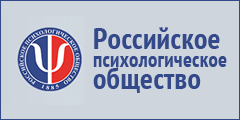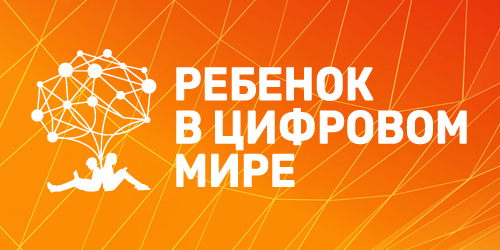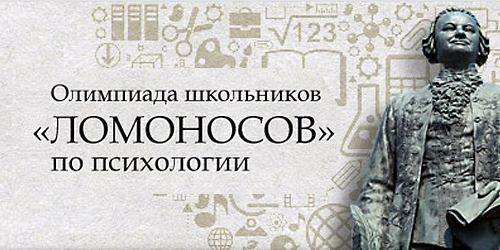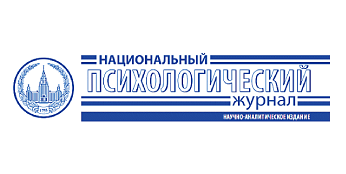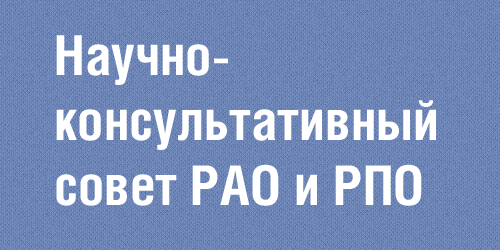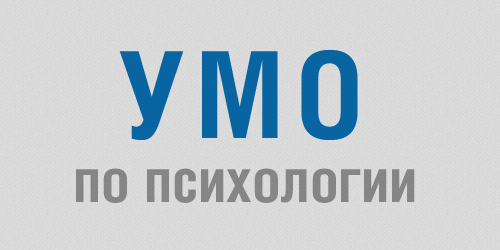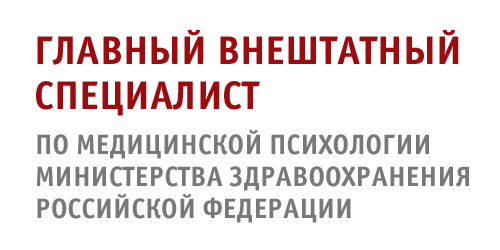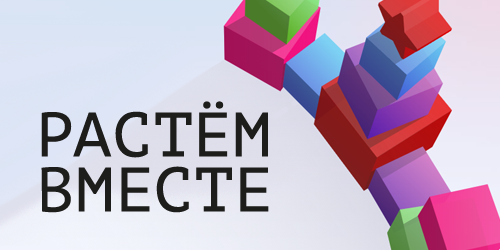Влияние физической активности дошкольников на развитие регуляторных функций: теоретический обзор исследований
Аннотация
Актуальность. Активизация у детей интереса к развлекательным телевизионным программам, к дополнительным приложениям мобильных средств, доступным в сети видеоиграм приводит к существенному снижению у них физической активности: дети привыкают к сидячему или лежачему образу жизни. Проблема исследования заключается в противоречии, которое возникает в связи с пониманием положительного влияния физической активности на развитие регуляторных функций дошкольника, с одной стороны, и существенным снижением этой активности в цифровых условиях современной образовательной среды, с другой стороны. Актуальность и перспективность исследования связи регуляторных функций и физической активности дошкольника в новых – цифровых – условиях осознана еще не до конца.
Цель работы: выделить и описать актуальные показатели физической активности детей дошкольного возраста, рассматриваемые зарубежными учеными, имеющие взаимосвязь с основными компонентами регуляторных функций (сдерживающим контролем, рабочей памятью, когнитивной гибкостью).
Метод. Теоретический обзор исследований за последние десять лет (2010–2020), посвященных изучению взаимосвязи различных показателей физической активности и регуляторных функций у детей дошкольного возраста.
Результаты. В статье представлен анализ исследований зарубежных авторов, на основании которого выявлены базовые показателиразвития физической активности детей, значимые для развития регуляторных функций (достаточность физической активности; возрастная целесообразность; характер физической активности; форма организации физической активности) и частные показатели (взаимосвязь физической активности и регуляторных функций в различных видах спорта, длительность и интенсивность физической нагрузки, а также наличие программного обеспечения развития физической активности дошкольников).
Выводы. Обзор показал, что большинство авторов подчеркивают значимую роль базовых показателей физической активности и их влияния на регуляторные функции. Аэробные упражнения являются наиболее эффективными в развитии регуляторных функций у детей дошкольного возраста. Частные показатели выделены из исследований развития регуляторных функций в конкретных видах спорта (футбол, каратэ, йога, мини-батут) и нуждаются в проведении дополнительных исследований относительно длительности физической нагрузки, интенсивности физических упражнений.
Литература
Письмо Министерства просвещения РФ «О направлении методических рекомендаций» (от 25.03.2020, № ГД-65/03). [Электронный ресурс] // URL:https://www.garant.ru/products/ipo/prime/doc/73731126/?prime (дата обращения: 15.04.2020).
Федеральный закон «О физической культуре и спорте в Российской Федерации» (от 04.12.2007, № 329-ФЗ). [Электронныйресурс] // URL: https://base.garant.ru/12157560/ (дата обращения: 25.04.2020).
Ackerman D.J., Friedman-Krauss A.H. (2017) Preschoolers’ executive function: Importance, contributors, research needs and assessment options. ETS Research Report Series, 1, 1–24.
Alesi M., Bianco A., Padulo J., Vella F.P., Petrucci M., Paoli A., Palma A., Pepi A. (2014) Motor and cognitive development: the role of karate. Muscles, ligaments and tendons journal, 4 (2), 114–120.
Best J.R. (2010) Effects of Physical Activity on Children's Executive Function: Contributions of Experimental Research on Aerobic Exercise. Developmental review, 30 (4), 331–551.
Best J.R., Miller P.H. (2010) A Developmental Perspective on Executive Function. Child Development, 81, 1641–1660.
Biddle S.J., Asare M. (2011) Physical activity and mental health in children and adolescents: a review of reviews. British journal of sports medicine, 45 (11), 886–895.
Bierman K.L., Torres M. (2016) Promoting the development of executive functions through early education and prevention programs. In J.A. Griffin, P. McCardle, & L.S. Freund (Eds.), Executive function in preschool-age children: Integrating measurement, neurodevelopment, and translational research (pp. 299–326). American Psychological Association.
Carson V., Hunter S., Kuzik N., Wiebe S.A., Spence J.C., Friedman A., Tremblay M.S., Slater L., Hinkley T. (2016) Systematic review of physical activity and cognitive development in early childhood. Journal of science and medicine in sport, 19 (7), 573–578.
Castelli D.M., Centeio E.E., Hwang J., Barcelona J.M., Glowacki E.M., Calvert H.G., Nicksic H.M. (2014) The history of physical activity and academic performance research: informing the future. Monographs of the Society for Research in Child Development, 79 (4), 119–148.
Chaddock-Heyman L., Erickson K.I., Voss M.W., Knecht A.M., Pontifex M.B., Castelli D.M., Hillman C.H., Kramer A.F. (2013) The effects of physical activity on functional MRI activation associated with cognitive control in children: a randomized controlled intervention. Frontiers in human neuroscience, 7, 72.
Chaddock L., Hillman C.H., Pontifex M.B., Johnson C.R., Raine L.B., Kramer A.F. (2012) Childhood aerobic fitness predicts cognitive performance one year later. Journal of sports sciences, 30 (5), 421–430.
Chang Y.K., Labban J.D., Gapin J.I., Etnier J.L. (2012) The effects of acute exercise on cognitive performance: a meta-analysis. Brain research, 1453, 87–101.
Chang Y., Tsai Y.J., Chen T.T., Hung T.M. (2013) The impacts of coordinative exercise on executive function in kindergarten children: an ERP study. Experimental Brain Research, 225, 187–196.
Chen A.-G., Yan J., Yin H.-C., Pan C.-Y., Chang Y.-K. (2014) Effects of acute aerobic exercise on multiple aspects of executive function in preadolescent children. Psychol. Sport Exerc. 15, 627–636.
de Greeff J.W., Bosker R.J., Oosterlaan J., Visscher C., Hartman E. (2018) Effects of physical activity on executive functions, attention and academic performance in preadolescent children: a meta-analysis. Journal of Science and Medicine in Sport, 21 (5), 501–507.
Diamond A. (2015) Effects of Physical Exercise on Executive Functions: Going beyond Simply Moving to Moving with Thought. Annals of Sports Medicine and Research, 2 (1), 1011.
Diamond A., Ling D.S. (2016) Conclusions about interventions, programs, and approaches for improving executive functions that appear justified and those that, despite much hype, do not. Developmental Cognitive Neuroscience, 18, 34–48.
Donnelly J.E., Hillman C.H., Castelli D., Etnier J.L., Lee, S., Tomporowski P., Lambourne K., Szabo-Reed A.N. (2016). Physical activity, fitness, cognitive function, and academic achievement in children: A systematic review. Medicine and Science in Sports and Exercise, 48 (6), 1223–1224.
Gentile A., Boca S., Şahin F.N., Güler Ö., Pajaujiene S., Indriuniene V., Demetriou Y., Sturm D., Gómez-López M., Bianco A., Alesi M. (2020) The Effect of an Enriched Sport Program on Children’s Executive Functions: The ESA Program. Frontiers Psychology, 11, 657.
Hillman C.H., Schott N. (2013) Der Zusammenhang von Fitness, kognitiver Leistungsfähigkeit und Gehirnzustand im Schulkindalter: Konsequenzen für die schulische Leistungsfähigkeit. Zeitschrift fur Sportpsychologie, 20 (1), 33–41.
Hillman C.H., Pontifex M.B., Castelli D.M., Khan N.A., Raine L.B., Scudder M.R., Drollette E.S., Moore R.D., Wu C.-T., Kamijo K. (2014) Effects of the FITKids randomized controlled trial on executive control and brain function. Pediatrics, 134 (4), e1063–e1071.
Jarraya S., Wagner M., Jarraya M., Engel F.A. (2019) 12 Weeks of Kindergarten-Based Yoga Practice Increases Visual Attention, Visual-Motor Precision and Decreases Behavior of Inattention and Hyperactivity in 5-Year-Old Children. Frontiers in psychology, 10, 796.
Kohl H.W., 3rd, Craig C.L., Lambert E.V., Inoue S., Alkandari J.R., Leetongin G., Kahlmeier S., Lancet Physical Activity Series Working Group (2012) The pandemic of physical inactivity: global action for public health. Lancet (London, England), 380 (9838), 294–305.
Mavilidi M.F., Okely A.D., Chandler P., Cliff D.P., Paas F. (2015) Effects of integrated physical exercises and gestures on preschool children’s foreign language vocabulary learning. Educational Psychology Review, 27 (3), 413–426.
McClelland M.M., Cameron C.E. (2012) Self-Regulation in Early Childhood: Improving Conceptual Clarity and Developing Ecologically Valid Measures. Child Development Perspectives, 6, 136–142.
McMorris T., Sproule J., Turner A., Hale B. J. (2011) Acute, intermediate intensity exercise, and speed and accuracy in working memory tasks: a meta-analytical comparison of effects. Physiology & behavior, 102 (3–4), 421–428.
Miyake A., Friedman N.P., Emerson M.J., Witzki A.H., Howerter A., Wager T. (2000) The unity and diversity of executive functions and their contributions to complex «frontal lobe» tasks: A latent variable analysis. Cognitive Psychology, 41, 49–100.
Niederer I., Kriemler S., Gut J., Hartmann T., Schindler C., Barral J., Puder J.J. (2011) Relationship of aerobic fitness and motor skills with memory and attention in preschoolers (Ballabeina): a cross-sectional and longitudinal study. BMC pediatrics, 11, 34.
Nisa L., Wuryandani W. (2018) Effect of Gross Motor Activity on Self-Regulation of Preschool Children. 10th International Conference on Languages, Humanities, Education and Social Sciences (LHESS-18), 67–71.
Palmer K.K., Chinn K.M., Robinson L.E. (2017) Using Achievement Goal Theory in Motor Skill Instruction: A Systematic Review. Sports medicine (Auckland, N.Z.), 47 (12), 2569–2583.
Palmer K.K., Miller M.W., Robinson L.E. (2013) Acute exercise enhances preschoolers' ability to sustain attention. Journal of sport & exercise psychology, 35 (4), 433–437.
Paschen L., Lehmann T., Kehne M., Baumeister J. (2019) Effects of acute physical exercise with low and high cognitive demands on executive functions in children: A systematic review. Pediatric Exercise Science, 31 (3), 267–281.
Reimers A.K., Boxberger K., Schmidt S., Niessner C., Demetriou Y., Marzi I., Woll A. (2019) Social Support and Modelling in Relation to Physical Activity Participation and Outdoor Play in Preschool Children. Children (Basel, Switzerland), 6 (10), 115.
Robinson L.E., Palmer K.K., Bub K.L. (2016). Effect of the Children’s Health Activity Motor Program on Motor Skills and Self-Regulation in Head Start Preschoolers: An Efficacy Trial. Frontiers in Public Health, 4, 1–9.
Sember V., Kovač M., Starc G., Jurak G. (2019) Physical activity and academic performance in slovenian schoolchildren. Didactica Slovenica – Pedagoska Obzorja, 34 (3), 3–18.
Sibley B.A., Etnier J.L. (2003) The relationship between physical activity and cognition in children: аMeta-Analysis. Pediatric exercise science 15 (3), 243–256.
Sofi F., Valecchi D., Bacci D., Abbate R., Gensini G.F., Casini A., Macchi C. (2011) Physcal activity and risk of cognitive decline: a meta-analysis of prospective studies. Journal of internal medicine, 269 (1), 107–117.
Stein M., Auerswald M., Ebersbach M. (2017) Relationships between Motor and Executive Functions and the Effect of an Acute Coordinative Intervention on Executive Functions in Kindergartners. Frontiers in psychology, 8, 859.
Timmons B.W., Leblanc A.G., Carson V., Connor Gorber S., Dillman C., Janssen I., Kho M.E., Spence J.C., Stearns J.A., Tremblay M.S. (2012) Systematic review of physical activity and health in the early years (aged 0–4 years). Applied physiology, nutrition, and metabolism = Physiologie appliquee, nutrition et metabolisme, 37 (4), 773–792.
Тompsett C., Sanders R., Taylor C., Cobley S. (2017) Pedagogical Approaches to and Effects of Fundamental Movement Skill Interventions on Health Outcomes: A Systematic Review. Sports medicine (Auckland, N.Z.), 47 (9), 1795–1819.
Tortella P., Fumagalli G., Coppola R., Schembri R., Pignato S. (2019) The role of the educator/adult in supporting children of pre-school age in learning difficult tasks: The case of the playground “Primo sport 0246”. Journal of Physical Education and Sport, 19 (5), 2015–2023.
Tortella P., Haga M., Loras H., Sigmundsson H., Fumagalli G. (2016) Motor Skill Development in Italian Pre-School Children Induced by Structured Activities in a Specific Playground. PloS one, 11(7), e0160244.
Verbeken S., Braet C., Goossens L., van der Oord S. (2013). Executive function training with game elements for obese children: a novel treatment to enhance self-regulatory abilities for weight-control. Behaviour research and therapy, 51 (6), 290–299.
Verburgh L., Königs M., Scherder E. J., Oosterlaan J. (2014) Physical exercise and executive functions in preadolescent children, adolescents and young adults: a meta-analysis. British journal of sports medicine, 48 (12), 973–979.
Wen X., Zhang Y., Gao Z., Zhao W., Jie J., Bao L. (2018) Effect of mini‐trampoline physical activity on executive functions in preschool children. [Electronic resource]. BioMed Research International. URL: https://doi.org/10.1155/2018/2712803(date of retrieval: 25.06.2020).
World Health Organization (2010) Global recommendations on physical activity for health. WHO Library Cataloguing-in-Publication Data [Electronic resource]. URL: https://www.who.int/dietphysicalactivity/publications/9789241599979/en/ (date of retrieval: 17.07.2020).
Zeng N., Ayyub M., Sun H., Wen X., Xiang P., Gao Z. (2017). Effects of Physical Activity on Motor Skills and Cognitive Development in Early Childhood: A Systematic Review. BioMed research international, 2017, 2760716.
Zeng X., Cai L., Wong S.H., Lai L., Lv Y., Tan W., Jing J., Chen Y. (2020). Association of Sedentary Time and Physical Activity With Executive Function Among Children. [Electronic resource]. Academic Pediatrics. URL: https://doi.org/10.1016/j.acap.2020.02.027(date of retrieval: 06.06.2020).
Поступила: 29.06.2020
Принята к публикации: 03.08.2020
Дата публикации в журнале: 20.09.2020
Ключевые слова: дошкольный возраст; физическое развитие; физическая активность; регуляторные функции; рабочая память; торможение; когнитивная гибкость
DOI: 10.11621/vsp.2020.03.10
Доступно в on-line версии с: 20.09.2020
Твардовская А.А., Габдулхаков В.Ф., Новик Н.Н., Гарифуллина А.М. (2020). Влияние физической активности дошкольников на развитие регуляторных функций: теоретический обзор исследований. Вестник Московского университета. Серия 14. Психология, (3), 214-238. https://doi.org/10.11621/vsp.2020.03.10
скопировано

Это произведение доступно по лицензии Creative Commons «Attribution-NonCommercial» («Атрибуция-Некоммерчески») 4.0 Всемирная



